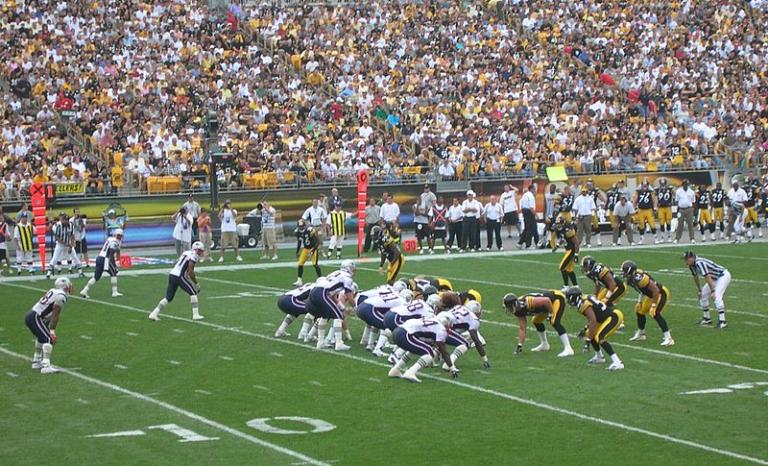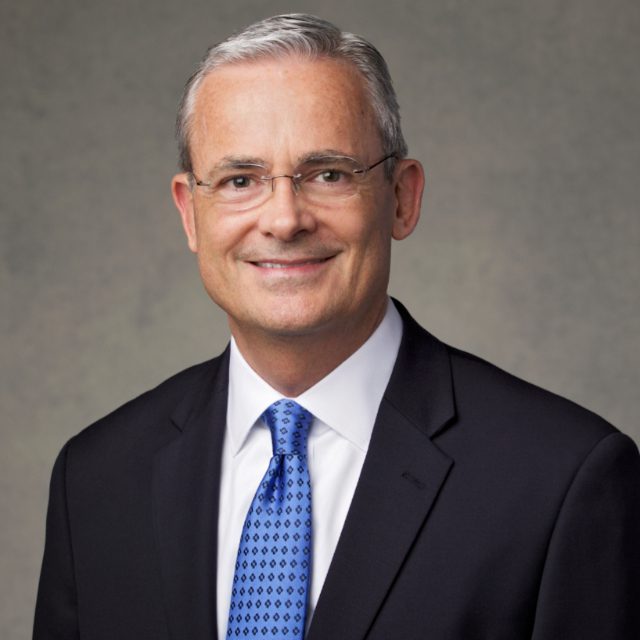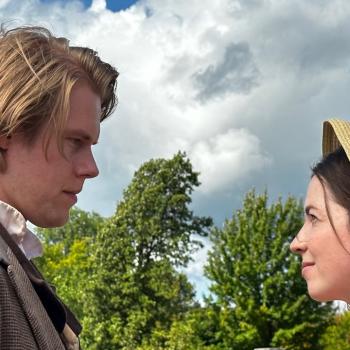
(Wikimedia Commons public domain image)
I think that apologetics, as such, is inevitable. Stripped of specifically religious elements, it’s merely the defense of a position. Scholars defend positions all the time, as they should. So do all the rest of us.
Whenever there is disagreement — e.g., over religion, politics, political candidates, even favorite restaurants or best vacation destinations — there will be affirmative statements and there will negative ones. “The food is wonderful there.” “Maybe, but the service is really, really slow.” “It’s such a pretty place.” “It’s too crowded.” “Senator Foghorn’s foreign policy stance toward the Duchy of Grand Fenwick seems to me very effective.” “I disagree, it relies too much on repeated nuclear strikes and too little on regular deliveries of fresh-baked blueberry pies.”
That is more or less what I have in mind when I distinguish, as I commonly do, between “positive apologetics” and “negative apologetics.” But I want to be very clear about that distinction, as I use it.
By “negative apologetics,” I don’t mean attacking other positions, let alone other people — to say nothing of nastiness and mean-spiritedness. (When I speak of “offense,” I’m not counseling that we be “offensive.”) I realize that my image, in certain quarters, is that I’m a vicious, hardhearted, conscienceless, polemical hack. But even if that characterization were accurate — which I’m halfway inclined to contest — it would have nothing at all to do with what I’m saying here.
What I mean by “negative apologetics” is defending a position — whether that position be religious or not — against attack. It is comparable to playing defense in football. In baseball, it’s what one team is doing when the other team is “at bat.” They’re trying to prevent a score. I judge “negative apologetics” to be essential, and I regard it as just as justifiable, both morally and intellectually, as what I’ve called “positive apologetics.”
What, though, is “positive apologetics”? What I mean by the term is the provision of affirmative reasons for accepting a proposition or adopting a belief. It is what we often call advocacy. One might compare it to a football offense or to being “at bat” in a baseball game.
I see no reason to regard one as legitimate and the other as illegitimate. And, although some claim that no form of apologetics is legitimate, well, I see absolutely no reason to agree with that.
Suppose that Scientist X argues that nature is more important than nurture in the formation of human personality. He cites evidence and reasons to support his claim. In that case, he is doing something essentially like positive apologetics. Is there anything wrong with doing so? Not that I can see.
Faced with Scientist X’s claim, Scientist Y disagrees, and he publishes an article disputing Scientist X’s evidence and reasons.
It would be rather odd if Scientist X, while still holding his view, were to chastely decline to defend his position, declaring such defense morally illegitimate. But if he were to respond by attempting to rebut Scientist Y’s objections, he would, in that case, simply be doing a form of negative apologetics.
It is entirely legitimate to argue that the Three Witnesses to the Book of Mormon are credible. Such an argument would be positive apologetics. It is every bit as legitimate to seek to rebut claims that Oliver Cowdery denied his testimony, that Martin Harris was an unstable loon, or that David Whitmer isn’t a reliable source. In each case, the counterargument would be negative apologetics.
And that is what I mean by the terms.
Thus, to restate my opinion as clearly as I know how to do: Both positive and negative apologetics are, in my judgment, entirely legitimate — just as offense and defense are entirely legitimate in football and just as both batting and fielding are entirely legitimate in baseball.

Over at the Peterson Obsession Board, denigrating and mocking Stephen Smoot (presumably because he threatens their position) is a popular occasional pastime, as is, much less frequently, lionizing Dan McClellan (because they esteem him, whether correctly or not, as a potent weapon against Latter-day Saint apologetics and Latter-day Saint beliefs). Recently “Dumb-Dud” and my Mini-Stalker have teamed up there to use me in this game, and I think that I need to contradict their abuse of me (and of Brothers Smoot and McClellan) now, before it settles into the record as being true:
Supposedly, I have somewhere pronounced Dan McClellan the best student that I ever had. But Steve Smoot, they say, also took several classes from me while he was a student at BYU, and so, therefore, my identification of Dan McClellan as my all-time best student must surely fill Brother Smoot with shame and jealousy and sadness.
However, I don’t believe that Steve Smoot ever took a class from me at BYU. (He can correct me on that if I’m wrong.) And I have never said that Dan McClellan was the best student that I ever had at BYU. I’ve never even said that about anybody privately. Nor would I ever say it publicly — not least for the very reason that I wouldn’t want to cause other good students to feel relatively devalued. I’ve said, yes, that Dan was a very good student. But I haven’t crowned a “best student ever,” not even in my own mind. There are several past students who, if I ever cared to do so, would definitely be in the competition.

“Elder Patrick Kearon Shares Ramadan Greeting with Muslims around the World”
I join my greeting with his. I’m aware that this blog has at least a few Muslim readers around the world, and I wish them all a Ramadan Mubarak, a Ramadan Kareem.

















